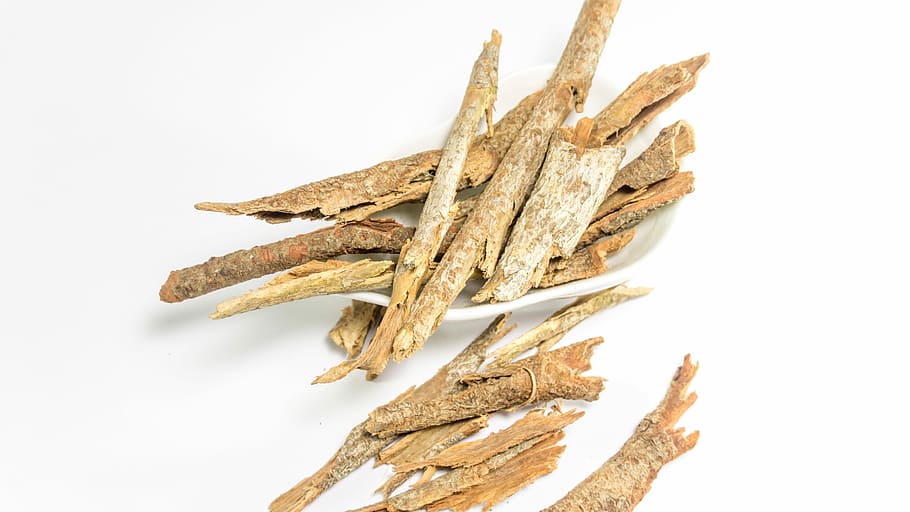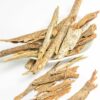What does a woman want?
For thousands of years, the planet Earth has been dominated by patriarchy (male dominance in society). And only recently have democratic achievements formally equalized women with men. As a child, I was sure that boys are “more important” than girls. With age, this confidence weakened somewhat and gradually faded away.
While a man is wasting his strength on strengthening his pedestal, confirming his external leadership and significance, a woman, like a gray eminence, actually rules this world, pulling the strings of male pride.
A woman is the keeper of the family hearth: household wealth and comfort, children and her husband himself. A woman collects and accumulates energy, motivates and directs a man’s activity. And nature has generously endowed a woman with the qualities necessary for this role: intuition, endurance, tolerance, flexibility, beauty and grace.
And one more priceless gift was made by nature to a woman – this is Shatavari – a plant that has been faithfully serving a woman for thousands of years, helping her to maintain her feminine health and making her dreams of love and a child come true.
Success in men
Shatavari is the Sanskrit name adopted in Ayurveda. Literally translated, this word means “one hundred husbands.” Its tonic and rejuvenating effect on the female reproductive system, according to popular beliefs, allows a woman to have guaranteed success with men and makes it possible to “have a hundred husbands”.
The Latin name of this plant is Asparagus racemosus, the botanical name is racemose asparagus.
Shatavari is a climbing creeping plant up to 7 meters high with a developed root system, growing in the jungle. The leaves are narrow, shiny, dark green. The flowers are white. The fruits are black-purple berries.
It grows throughout India (especially in the northern regions), in China, Bhutan, Malaysia, Myanmar, Nepal, Pakistan, as well as in South Asia, Australia and West Africa.
For medicinal purposes, the leaves and roots of the plant are used.
Shatavari in Ayurvedic tradition
Shatavari is the main Ayurvedic anti-aging agent for women (rasayana), it is a tonic for the female reproductive and circulatory system. It cleanses the blood, nourishes the female reproductive organs and eggs, and increases their ability to fertilize.
Shatavari surrounds a woman with care at all periods of her life: it contributes to the correct development of the reproductive system in a girl, promotes the conception of a child, increases the secretion of milk during breastfeeding, and helps in menopause.
This herb contains herbal counterparts of female sex hormones and helps women who have had surgery to remove the uterus.
In addition, shatavari is an effective emollient for dry and inflamed mucous membranes of the stomach, lungs, kidneys and genitals. It is good for ulcers, relieves thirst, and helps to preserve body fluids.
Shatavari has a sattvic (benevolent) nature, promotes the development of love and devotion.
Ayurvedic properties of the plant (Dravya guna):
Taste (Rasa): Sweet (madhura), Bitter (tikta).
Qualities (Guna): Oily (snigdha), Heavy (guru).
Energy (Virya): Cold (sita).
Taste after digestion (Vipaka): Sweet (madhura).
Unique action (Prabhava): aphrodisiac, increases Ojas.
Effect on Doshas (Dosa): PV-K + (decreases Pitta and Vata, increases Kapha).
Restores tissues (Dhatu): Rasa, Rakta, Mamsa, Medas, Asthi, Maja, Shukra.
Pharmacological action (Karma): anti-aging, aphrodisiac, immunostimulating, diuretic, menstrual, increases the quantity and quality of semen, antitumor, lactogonic.
Therapeutic action (Rogagnata): infertility, impotence, menopause, low Ojas, weakness, convalescence, recurrent fevers, degradation, chronic lung disease, cough, candidiasis, diarrhea, dysentery, HIV.
Composition and useful properties of Shatavari
The roots and leaves of the plant contain specific steroidal glycosides (shatavarins, sarasopogenin, arassapogenin and diosgenin) and aglycones, alkaloids, flavonoids and phytoprolactin.
Beneficial effects of Shatavari: the components of the plant balance the female hormonal system, prevent the development of the duration of the reproductive period, activate the eggs and their ability to fertilize. They have antiulcer, immunostimulating, antibacterial, antitumor effects, delay the appearance of wrinkles.
Application of Shatavari: for menstrual irregularities, infertility, uterine fibroids, mastopathy, endometriosis, in menopause, for stomach ulcers, herpes and other diseases.
Shatavari has a positive effect on the male genital area and can be used in the complex treatment of impotence, spermatorrhea and inflammation of the genital organs.
Contraindications: high Ama, abundant mucus, increased prolactin. Limit dosage during pregnancy.
Thus, Shatavari is a real find for our dear women, fulfilling all their innermost desires.



